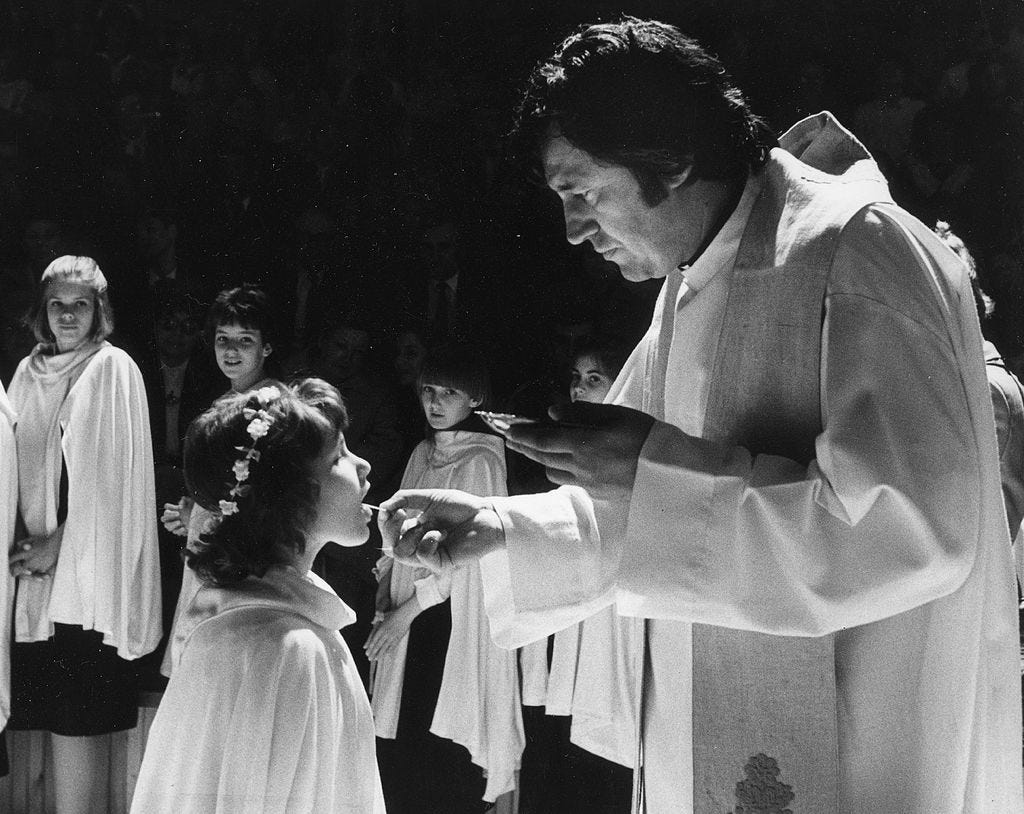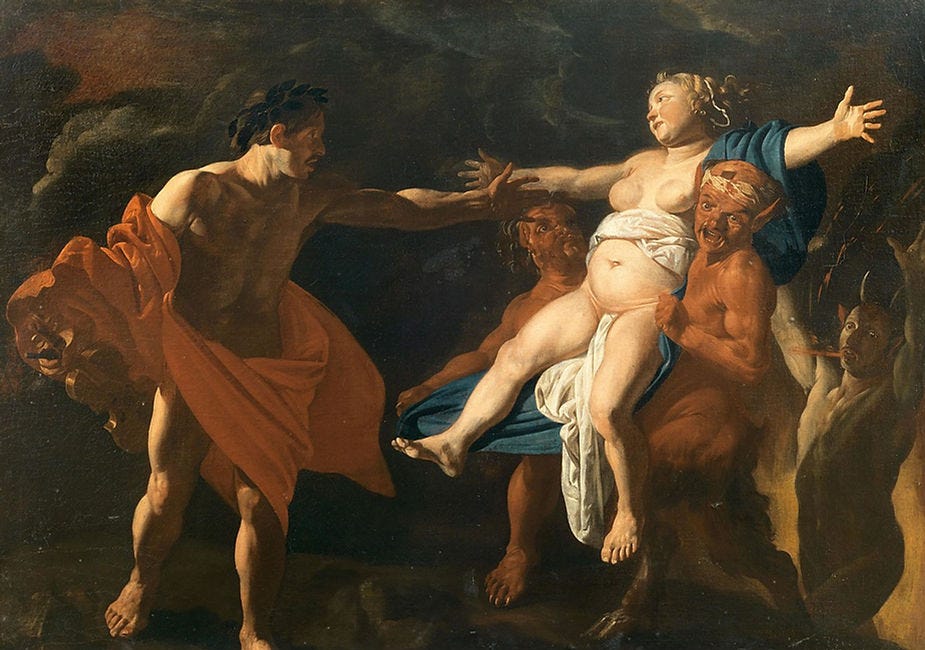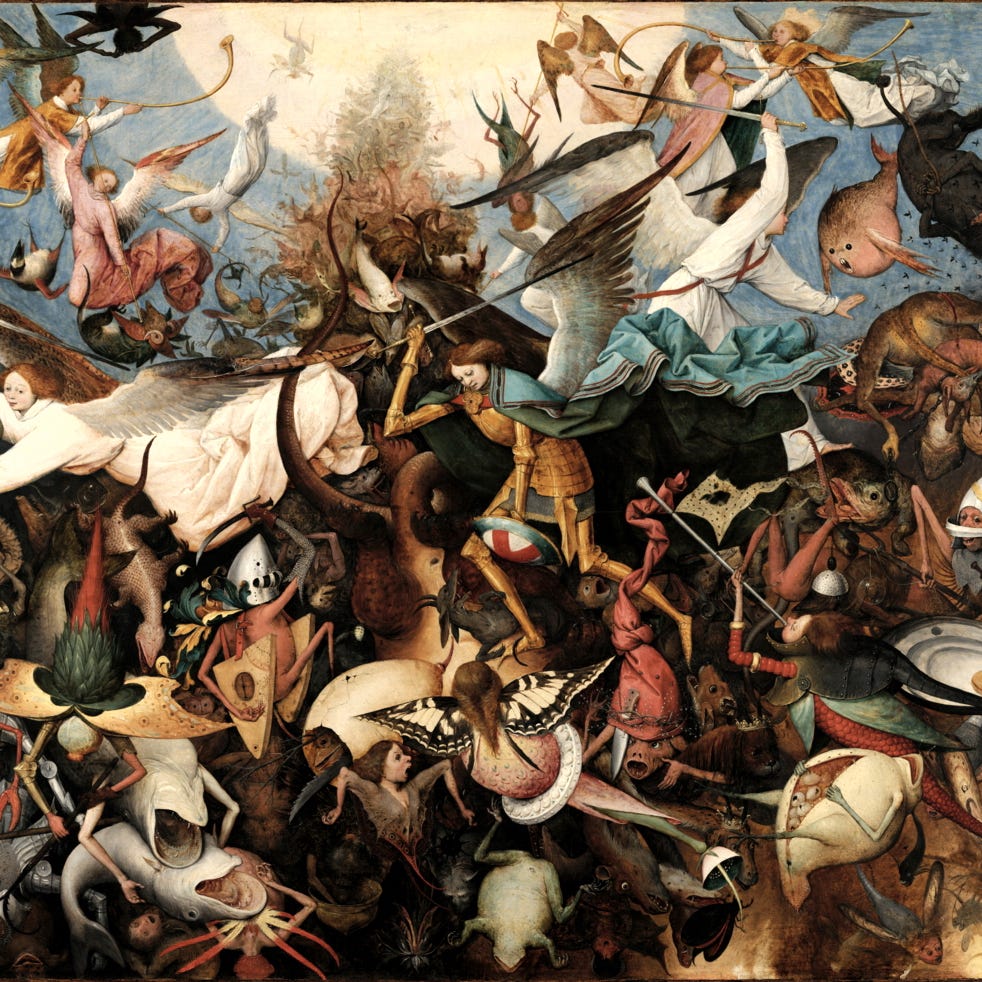Communion & Poetry
By John H.B. Martin
Communion
a nun takes the veil
The mist is frugal, and the forest green
and shady, where thin slats of sunlight weave
that sort of blind which leaves most eyes wide open.
Some sort of woodlark sings from high above
its “fruitless” song, which echoes even in
the depths of every shadow, like a bell
to summon every belle to ecstasy.
I too obey. And line up under one
abandoned pine, to take my cue from thyme
itself, whose scent envelops me in incense,
till each fresh tree seems like some monstrous feast.
They’re not! They’re only trees. (And even I
am only human.) - Please forgive me, lord,
for every crime I’ve mimed, but not committed.
Poetry
Romantic figures stalk the desolate streets
whose actual lives are scarcely that romantic.
How can they be? No life is that ideal!
(Reality must catch up at long last.)
Leave dreams to adolescents and their ilk:
romanticism is a bitter fruit
whose peel is more enticing than its pith
can ever prove, it’s such a devious poison.
Affect the classic pose. It’s not quite prose
perhaps… But it is poetry. Mere childhood's
adventurousness madly lies behind it
just like a dream wrapped in a sacrament…
While, in the foreground, all is calm and ordered
and discipline’s the flavor of the day.
John H.B. Martin is a poet who lives in London, England. He is a graduate of London University and Australia National University and has been writing for many decades. He has written four novels and is working on a fifth. His magnum opus is a six-volume epic poem. Most of his work is yet to be published.
Eurydice, A Vision, The Cave of Making & Other Poetry
Featured in New Lyre Magazine - Summer 2023 Eurydice That was the Sistine Chapel, wedged between our complex life and all that slept beneath your kisses, and my curses, as we danced love's simple dance beneath the midday moon. Which might as well have been the midnight sun






The word play’s a delight
That veils a deeper bite
Mr. Martin's lines transported me to childhood, adolescence and early manhood. My childhood was spent among Dominican nuns in the days before cape, coif, veil, habit and ponderous beads were replaced by the modern fashion of blue jeans and tee shirts. I remember them in their somber, black capes, kneeling in the first rows before the altar at 7:00 a.m. mass. I studied with them and was pruned and shaped under the tender mercies of modern day daughters of the Inquisition.
When I was nineteen I returned to visit an old nun whom I had loved. She received me in a little reception room with two arm chairs and small mahogany tables that showed no sines of use or wear. The room was a living diorama of the election of silence and solitude. At the end of my visit, Sr. Hildegarde took me into the nuns' small chapel, where we knelt in the soft lighting, and shared a prayer. I bever saw her again after that day. Later I found that she had died nine years later. Mr. Martin's poetry evoked memories of that last meeting in the dim lighting and sweet scent of bee's wax candles. No lark was there, only the invisible, silent comfort of a Paraclete that I had left in the shadows of another day.
Mr. Martin ponders the tension between thought and deed. His poem drew me into the silence that bridges memory and reflection.